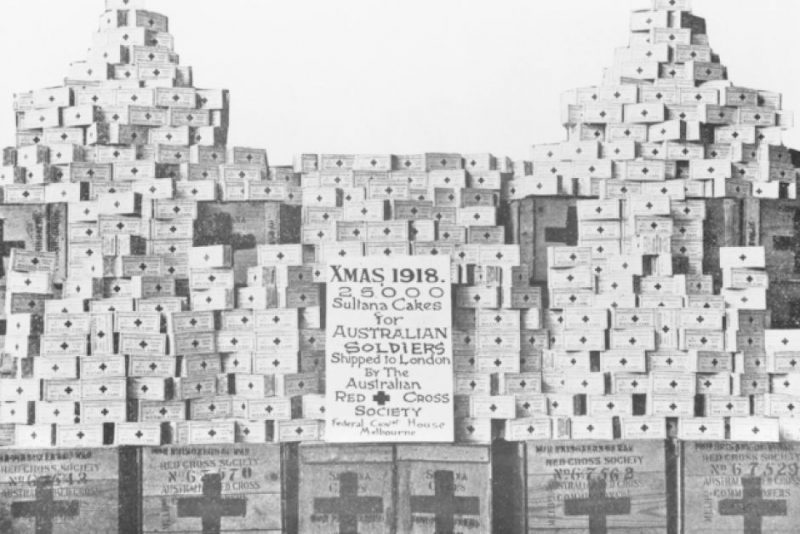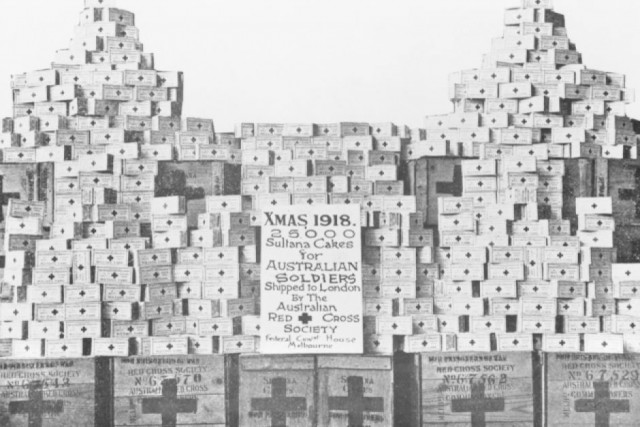On the centenary of World War I, Australia remembers its 50,000 Australian troops who spent their first Christmas away from home fighting for the Allies. During Christmas in 1914, the majority of Australian troops were based in Egypt in army training camps. They had sailed there from Australia a month before. Historians at the Australian War Memorial in Canberra, say that Christmas was the only time when the troops actually ate well. At the time in Egypt, Allied troops had a good relationship with the locals, so they could trade in local goods and foods using what they had brought with them from home.
The only things the troops would have with them was anything their families had sent from home and what they could buy locally. The next year, in 1915, a government fund was set up to send over a filled can of Christmas items for each soldier. The journey for goods from Australia to Egypt was about six weeks at sea, so the troops’ families had to send them well in advance and only use long life goods that were tinned or hard wearing like puddings, biscuits and cakes. Troops became experts at sourcing the local foods, fresh goods and wares, especially in Cairo where they could buy fresh fruit and vegetables, eggs and some meats. The diaries and letters from Australian troops have recounted how they ate pork and other meats at Christmas in 1914.
For their families back home and the rest of the Australian population, they were lucky enough to have a usual Christmas without rationing. Meanwhile other countries involved in the war such as the UK, France and Germany all had rationing implemented due to the war effort.
During Christmas in 1918, a huge 25,000 Christmas cakes were sent to London from Australia for the Australian service men and women.
In the UK, the government tried to retain ‘life as usual’ for as long as it could after the outbreak of World War I. However, by 1916, it became illegal to eat more than two courses at a public lunch and more than three for dinner. Fines were also introduced for anyone feeding wildlife or animals on the street, the ABC Rural reports.
As the war continued, shipping and importing goods became harder as Germany’s U-boats attacked incoming and outgoing cargo from the UK. As a result voluntary rationing was introduced in 1917 and was then made compulsory by the end of the same year. Ration books were issued in 1918 for dairy products, meat and sugar. This lasted until the end of the war and international trade could return to pre-war levels.

